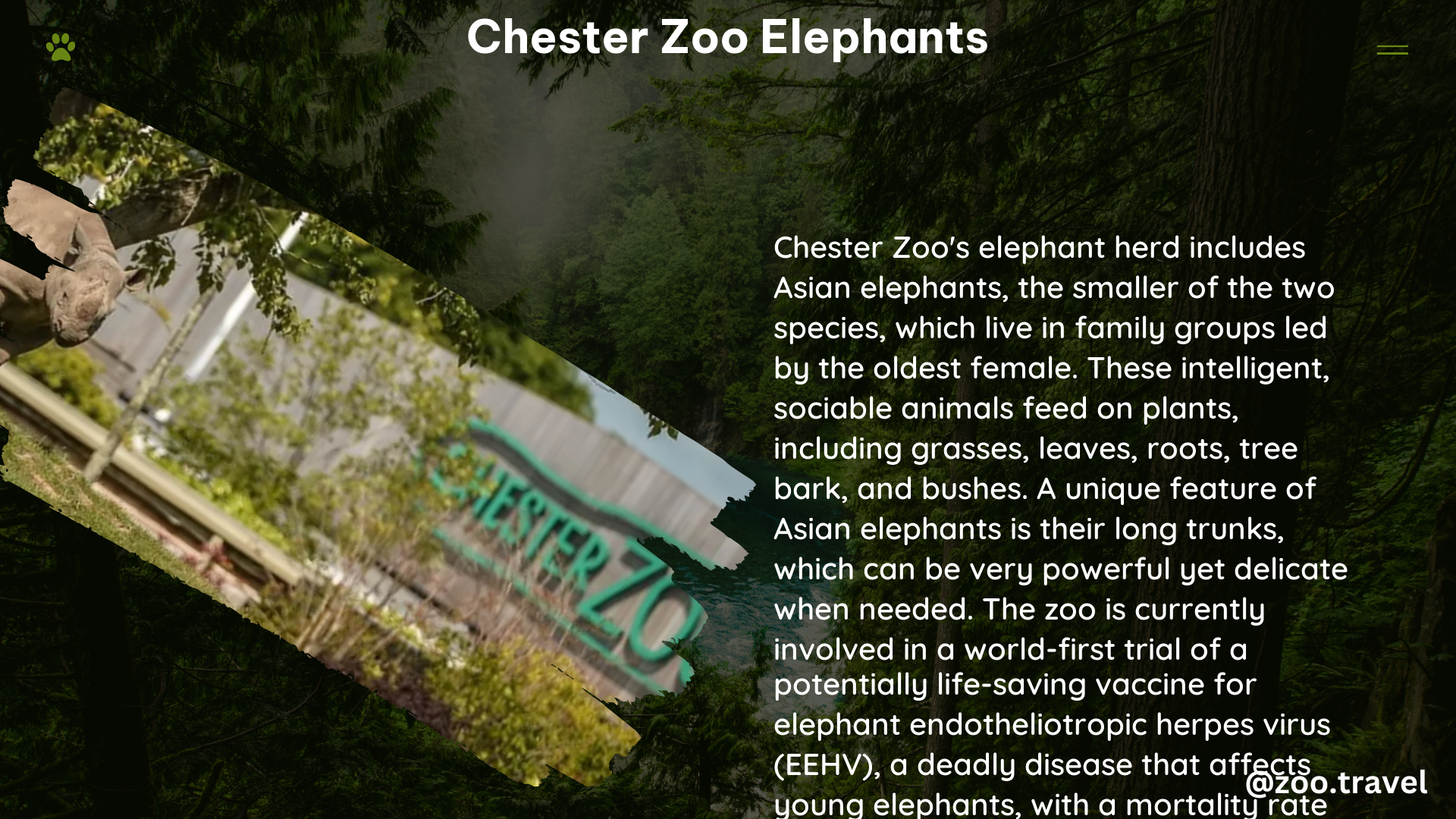Chester Zoo is home to a herd of Asian elephants, the largest land animals in the world known for their intelligence and sociability. The zoo has made significant strides in understanding and addressing the threats faced by these magnificent creatures, particularly the deadly elephant endotheliotropic herpesvirus (EEHV).
Asian Elephants at Chester Zoo
Asian elephants are smaller than their African counterparts, with long trunks that can be incredibly powerful yet delicate when needed for foraging. Both males and females have tusks, although not all males have visible tusks. In addition, Asian elephants have a finger at the end of their trunks, while African elephants have two fingers. Elephants are herbivores, feeding on plants, grasses, leaves, roots, tree bark, and bushes.
Elephant Endotheliotropic Herpesvirus (EEHV): A Major Threat

EEHV is a significant threat to the long-term survival of the Asian elephant, with only 40,000 individuals remaining in the wild. This deadly virus has been responsible for approximately half of the deaths of Asian elephants in European zoos since 1985 and half of the deaths in North American zoos since 1980. It has also been detected in sanctuaries, safari parks, and wild elephant herds in nine countries.
Vaccine Development: A Groundbreaking Initiative
Chester Zoo, in collaboration with scientists at the University of Surrey, has embarked on a world-first pilot study of a potential lifesaving vaccine for elephants affected by EEHV. The vaccine is being developed to prevent serious disease and death caused by the virus, which has a mortality rate of up to 85% in young Asian and African elephants.
The pilot study is being led by Chester Zoo’s elephant care experts, with support from other major conservation zoos in the UK and Ireland, including Dublin Zoo, Whipsnade Zoo, Blackpool Zoo, and Woburn Safari Park. The initial results from the trials are encouraging, with the vaccine appearing to stimulate an immune response.
Conservation and Adoption
Chester Zoo is committed to the conservation of Asian elephants, with experts emphasizing the importance of zoos in caring for the species and facilitating vaccine development. By adopting an Asian elephant at the zoo, visitors can support conservation efforts and help prevent extinction.
Visitor Experiences
Visitors to Chester Zoo can participate in the Elephant Experience, which offers the opportunity to interact with the elephant herd by hosing them down. This experience not only provides a unique encounter with these intelligent animals but also supports conservation efforts to protect them from extinction.
Key Facts about Chester Zoo Elephants
| Fact | Details |
|---|---|
| Species | Asian Elephants |
| Herd Size | Undisclosed |
| Tusks | Both males and females have tusks, but not all males have visible tusks |
| Trunk | Asian elephants have a single finger at the end of their trunk, while African elephants have two fingers |
| Diet | Herbivores, feeding on plants, grasses, leaves, roots, tree bark, and bushes |
| Threats | Elephant Endotheliotropic Herpesvirus (EEHV) |
| Conservation Efforts | Vaccine development, adoption program, and interactive visitor experiences |
Conclusion
Chester Zoo’s commitment to the conservation of Asian elephants is commendable, and the zoo’s efforts to develop a lifesaving vaccine for EEHV are truly groundbreaking. By visiting the zoo and participating in the Elephant Experience, visitors can support these crucial conservation initiatives and learn more about these magnificent creatures.
